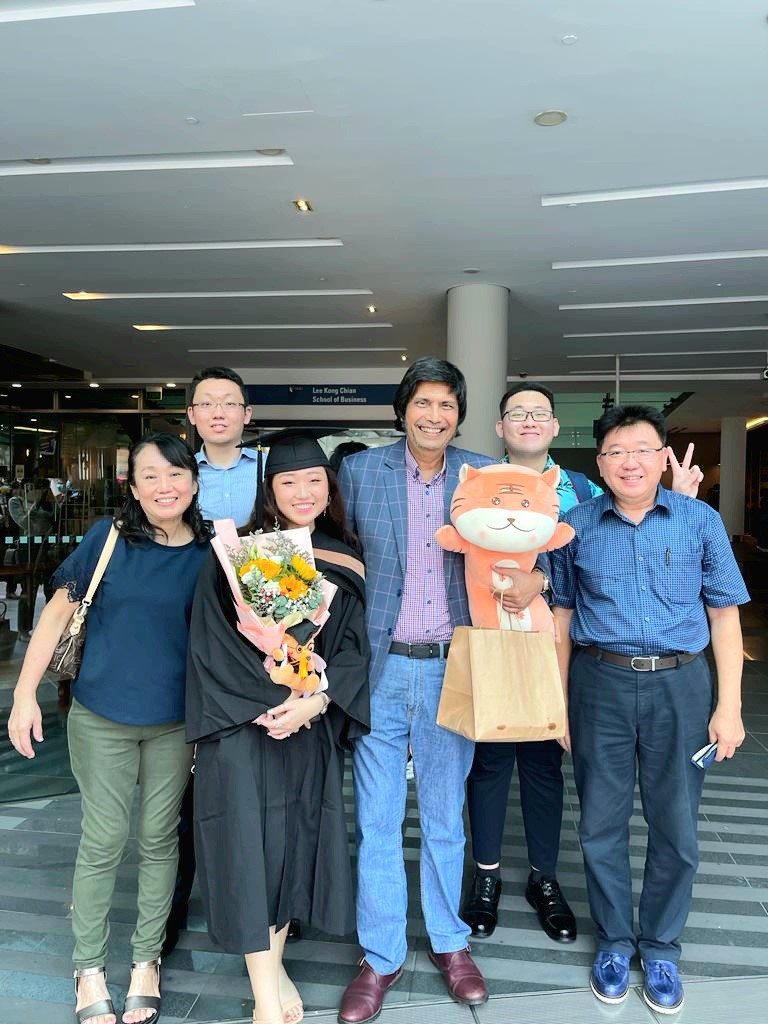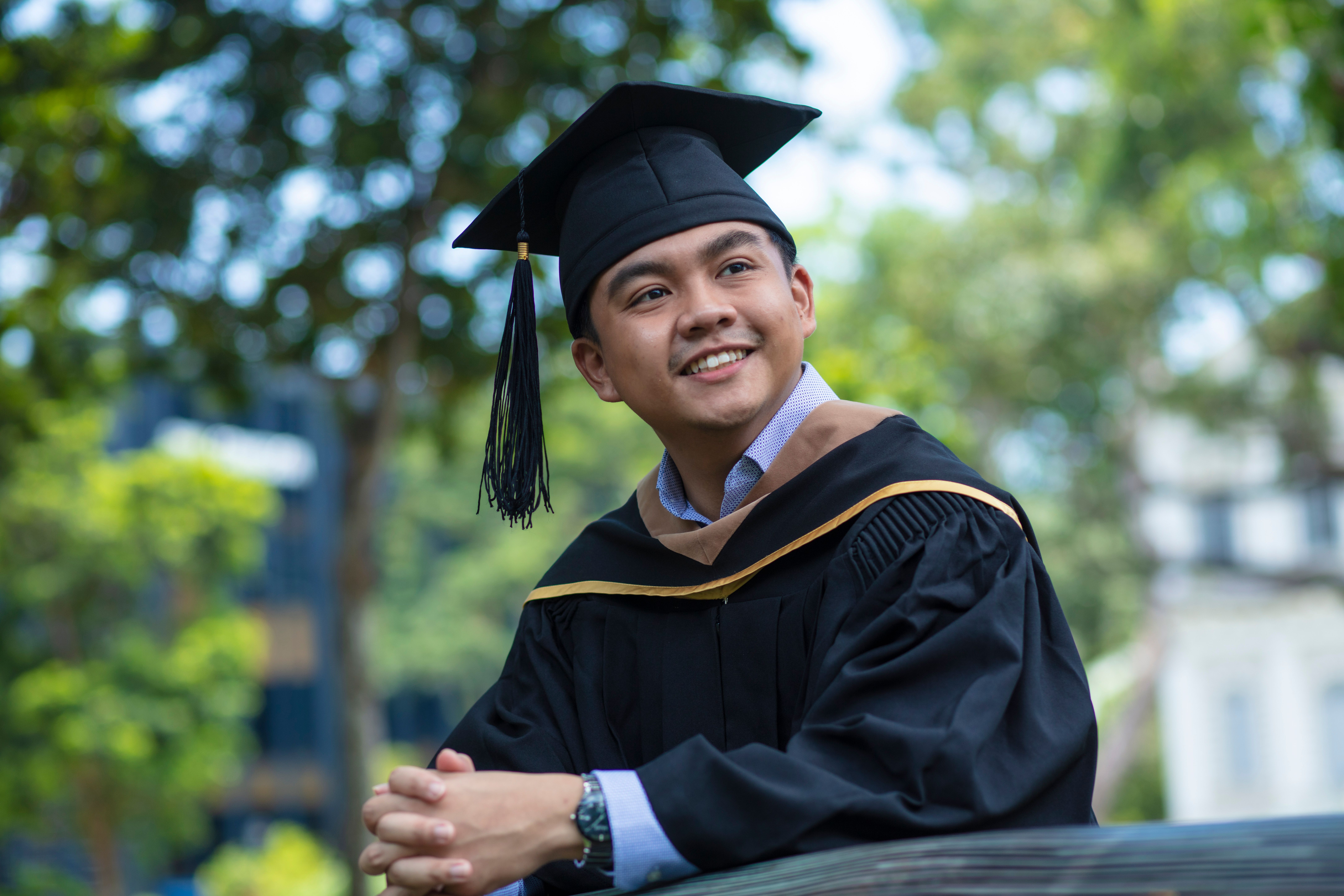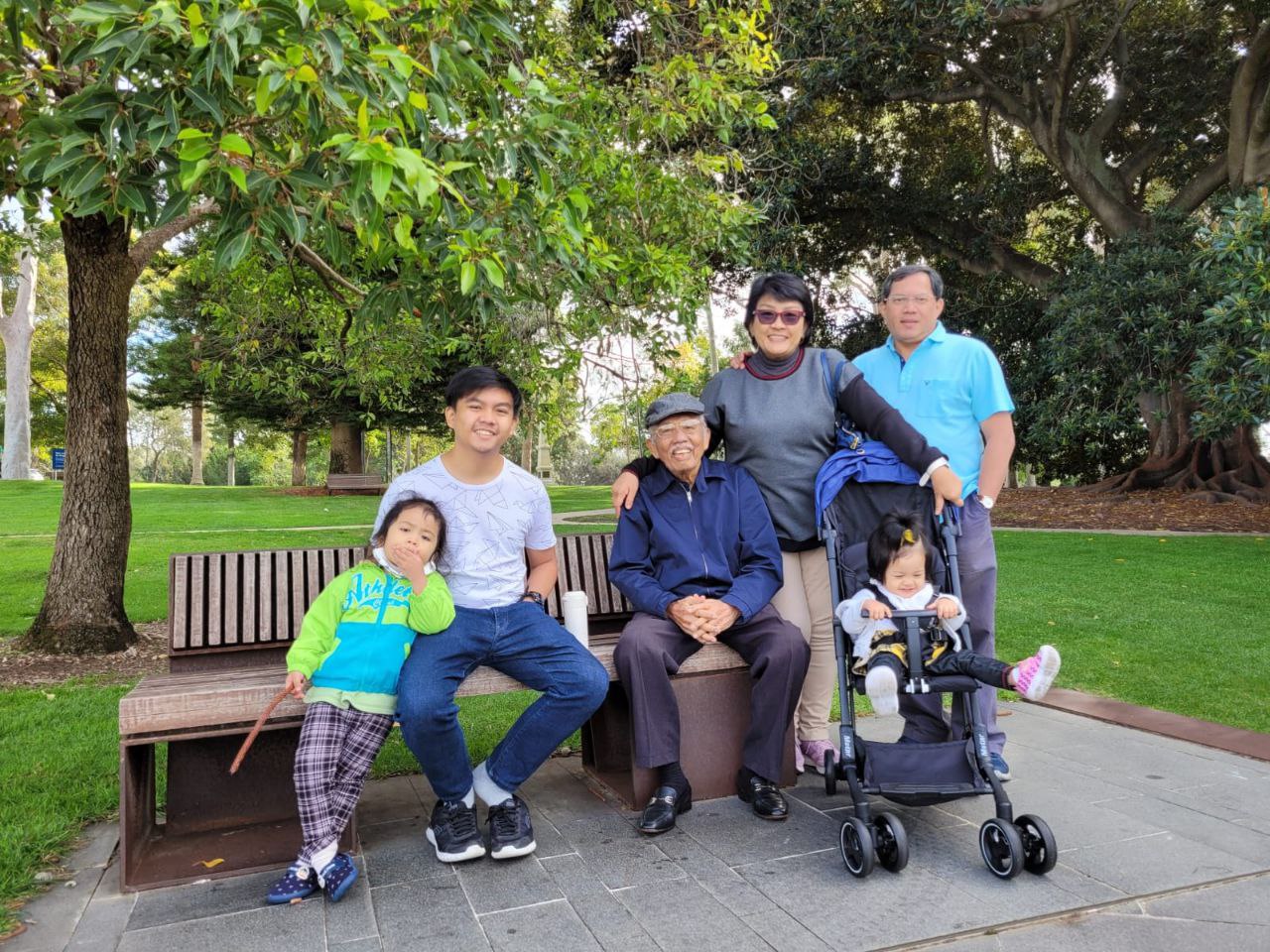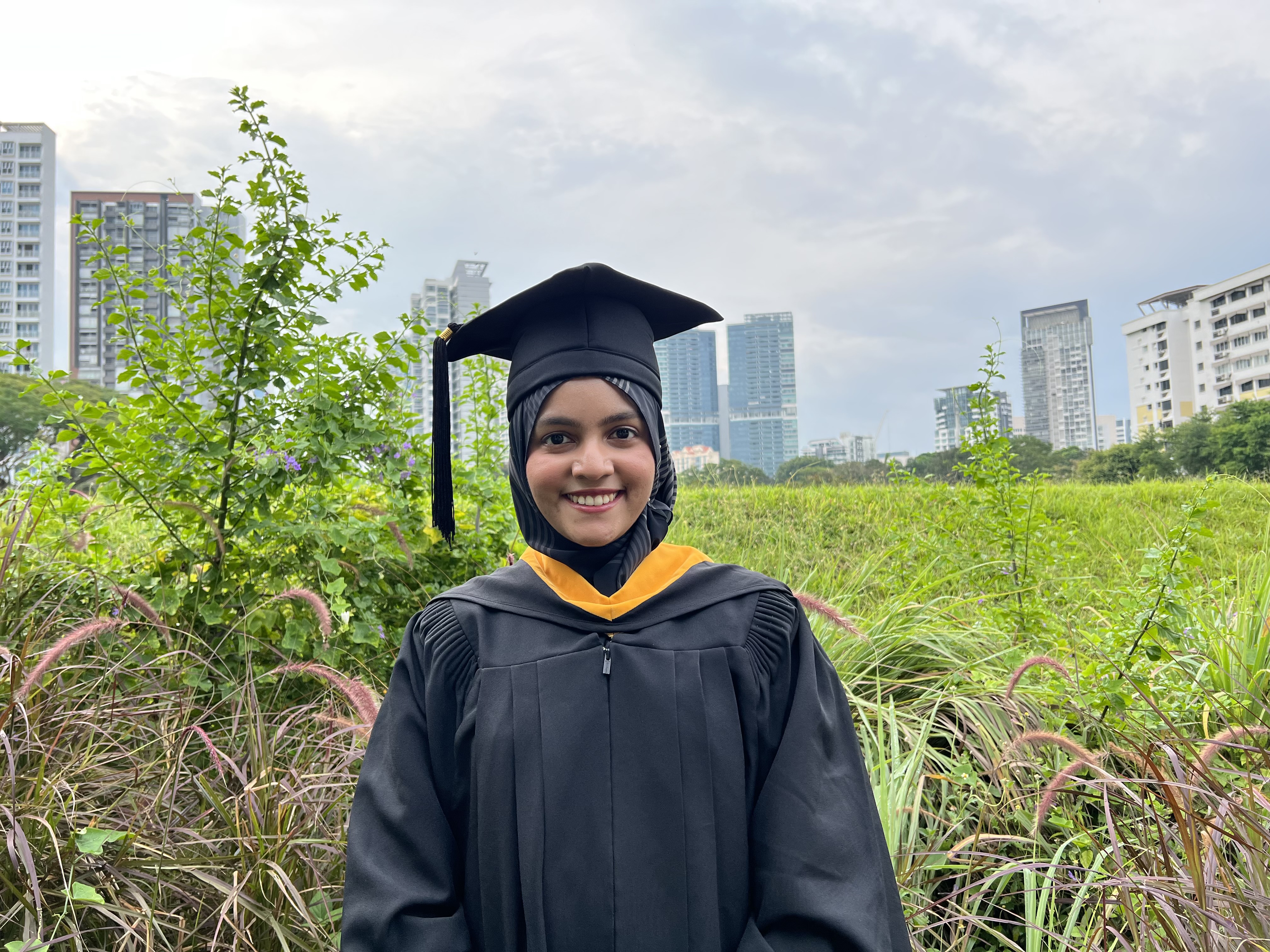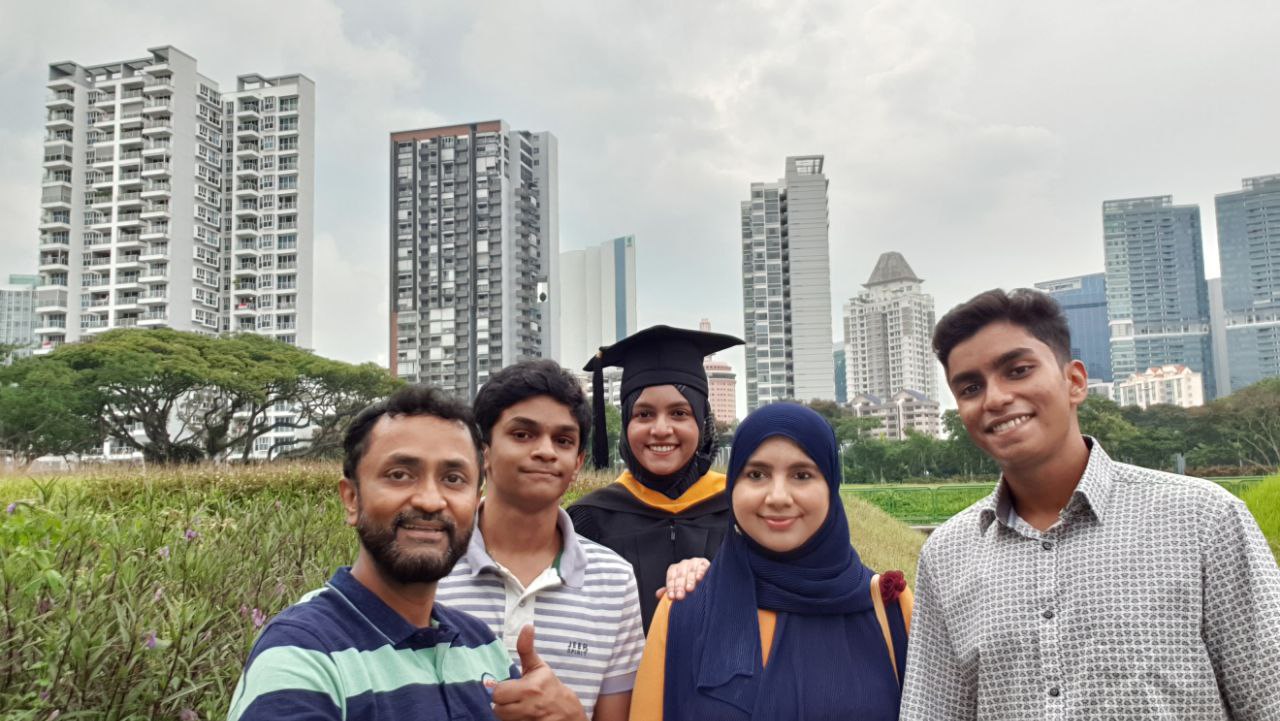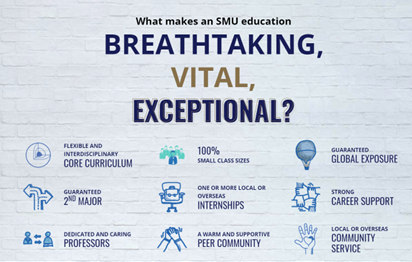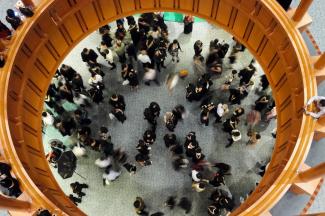
95.1 per cent of fresh graduates from Singapore Management University’s (SMU) found a job within six months of completion of their final examinations and also saw both the mean and median gross monthly salaries at an all-time high, despite the current economic conditions. The results were revealed in the annual Joint Autonomous Universities Graduate Employment Survey (JAUGES), jointly conducted by SMU and the other Autonomous Universities.
SMU Provost, Professor Timothy Clark said, “Despite slower economic growth in 2022, we are delighted to see that SMU graduates are very much in demand, with the great majority gainfully employed with good starting salaries. This is an acknowledgment of the appropriate marketplace readiness of our students honed by SMU’s robust and holistic broad-based academic and co-curricular programmes that nurture the values and soft skills much desired at the workplace. Compulsory global exposure, community service, and mandatory internships (which graduates complete an average of 2.7 during their studies), all contribute workplace relevance to students’ applied learning.”
Established in 2000, SMU is now home to over 12,000 students across undergraduate, postgraduate professional and postgraduate research programmes and comprises eight schools: School of Accountancy, Lee Kong Chian School of Business, School of Economics, School of Computing and Information Systems, Yong Pung How School of Law, School of Social Sciences, College of Integrative Studies and College of Graduate Research Studies. SMU offers a wide range of bachelors', masters', and PhD degree programmes in the disciplinary areas associated with its schools, as well as in multidisciplinary combinations of these areas.
SMU also firmly believes in international mobility for students and a 100% global exposure policy for undergraduates means that every student gets to experience some form of global exposure during their time with SMU. This can take the form of an overseas community service project, an overseas internship, foreign exchange programme, or an overseas SMU-X course. These opportunities go beyond just skills training for careers and offer breadth in knowledge, effective communication skills with cultural sensitivity and demonstrate a willingness to learn which both local and overseas employers appreciate in their prospective employees.
“An SMU education ensures students develop the skills and attributes that are critical and desired in any workplace today and these underpin our graduates’ future careers,” added Prof Clark.
Daphne Yap Li Sing is an alumna of Lee Kong Chian School of Business and a Skillsfuture Singapore (SSG)- Workforce Singapore (WSG) joint scholarship recipient. Before SMU, she was studying Business Administration at Singapore Polytechnic where she went on multiple ASEAN Regional internships. She completed a total of five internships during her study at SMU. During the pandemic, she realised that the government sector required help and thus took on internship roles at the Singapore Tourism Board and Ministry of Trade and Industry. There, she worked on domestic tourism campaigns to aid the local museum and food industry and was involved in multiple cross-border trade and aquaculture projects. To further challenge herself, Daphne took up a side volunteer project to help gather oxygen tanks from Singaporean Suppliers to help India alleviate their situation.
Daphne also went on a summer exchange programme at the University of Cambridge’s Pembroke-Kings College and a Business Study Mission in Seoul where she interacted with the founders of JustCo and Go Pizza. With her passion in Women Empowerment, she kickstarted a sold-out fund-raising project to help the less fortunate kickstart their own online businesses, where the event was graced by Mdm President Halimah Yacob. As the Founding President of SMU Re-X, a student led CCA that aims to Reignite, Reimagine and Revitalise Retail, she spearheaded an ASEAN Regional competition amongst ASEAN Universities on the topic of the Retail in the Covid world.
For Daphne, “SMU was the catalyst that encouraged me to step out of my bubble and conquer me fears. The myriad of growth opportunities allowed me to accomplish many things and even if I could turn back time, I would not have changed a thing!”
It has been about eight months since Daphne graduated and joined the workforce, she says, “the soft-skills and experiences gained from the extra-curricular activities have helped me develop a ‘Resilient sponge’ mindset at work where I absorb new skills, stretch my learning capacity, adapt to unpredictable workforce trends, and innovate with robust solutions.”
As a Manager with the Enterprise Programme Division in WSG, Daphne currently works with enterprises to drive job redesign efforts as part of their business and workforce transformation. This involves conducting market research to understand enterprises’ pain points, needs and motivations in considering job redesign for their workforce. As part of managing strategic partners in her role, she also undertakes stakeholder engagements, tracks progress of key programme deliverables and ensures proper governance for government funds granted to partners.
Through her journey with WSG, Daphne strives to reinvigorate and revolutionise the continued career resilience of Singapore’s workforce by empowering organisations to invest in enhancing their employees’ job value and career pathways through job redesign.
Mikail Ismail, a Summa Cum Laude graduate of the School of Accountancy and a Dean’s list awardee, spent the bulk of his time at SMU – mentoring and organising multiple camps and activities for his peers.
He did an internship at the Monetary Authority of Singapore (MAS) and gained multiple soft and hard skills that helped prepare him for the workplace today. The opportunity enabled him to showcase his talent to the management team where he left a good impression. Today, he is gainfully employed at MAS working with their FinTech and Innovation Group.
He adds, “My university life at SMU was filled with excitement - none of my four years were the same, each came with its own set of challenges, pleasant surprises and useful learnings. I spent half of it as a Student Leader, a third as a coach and mentor to juniors and explored new activities, hobbies and interest groups in my final year, in search for fresh experiences and fond memories. Indeed, I am not the same person who first entered university back in 2018. The SMU experience has helped hone both my academic and non-academic skills, and greatly shaped my character and personal values. Truly, there never was a time where I felt stagnant in SMU, as the opportunities to develop and grow were ever-present.”
Despite a degree in Accountancy and an internship stint in sustainability, his current role is in FinTech. He says, “I wanted to share that any student in any school should not let their degrees or courses define their future career. Never fall prey to the mindset that you have come "in too deep" in your career path and it does not warrant a change. No matter how deep-seated we are in any specific field, if there are other opportunities that better suit our goals and aspirations in life, it is important to remember that it is never too late for us to learn and grow in order to grasp at these opportunities.”
Shafeeka Rahama is a graduate from the School of Computing and Information Systems, majoring in business analytics and software development. Through SMU’s rigorous curriculum, she developed a wide variety of interests before graduation mainly in machine learning, software development and project management. To see which career path best suited her strengths, she took up three internship opportunities spanning from e-commerce to banking and was able to experience roles such as a technical project manager and Java backend developer.
Apart from taking up leadership roles, she also went for an exchange programme with Kyung Hee University in Korea where she took up contrasting modules such as anthropology and literature, to develop a holistic way of thinking.
She landed her first full time job before graduation at Citibank, where she had previously done an internship. She now works as a full-time Java software developer under the bank’s technology analyst programme, working on high performance microservices/applications.
She shared how SMU had prepared her for the industry, “SMU has provided career preparation support since year 1 in the form of hosting networking events, resume crafting and interview preparation workshops, and having each student assigned to a career coach, from whom students can get personalised advice on how to improve their resume. This support, coupled with the wide variety of technology stack that SMU covers in its curriculum, allows me to be confident in the skills set I have to offer. SMU has helped me to go beyond the scope of work assigned and to explore areas where I can create an impact for the team and company.”
If you want to be part of a university that offers you the most flexible and interdisciplinary curriculum and helps prepare you for your career, find out more here.

